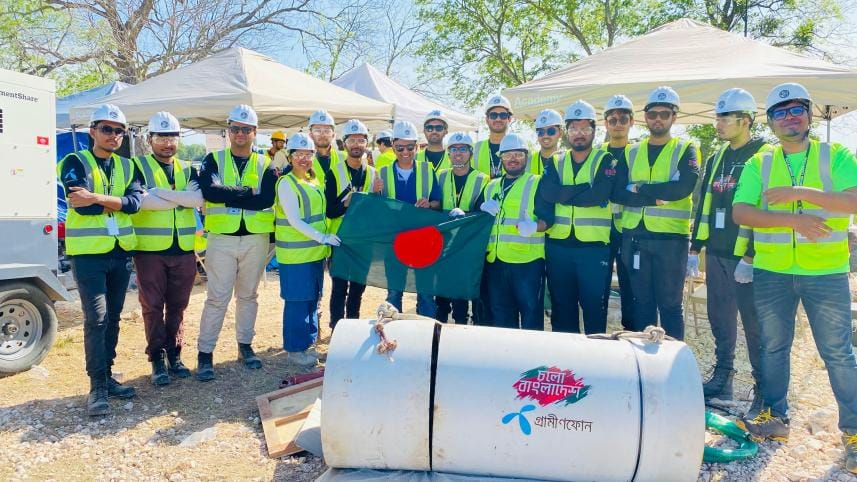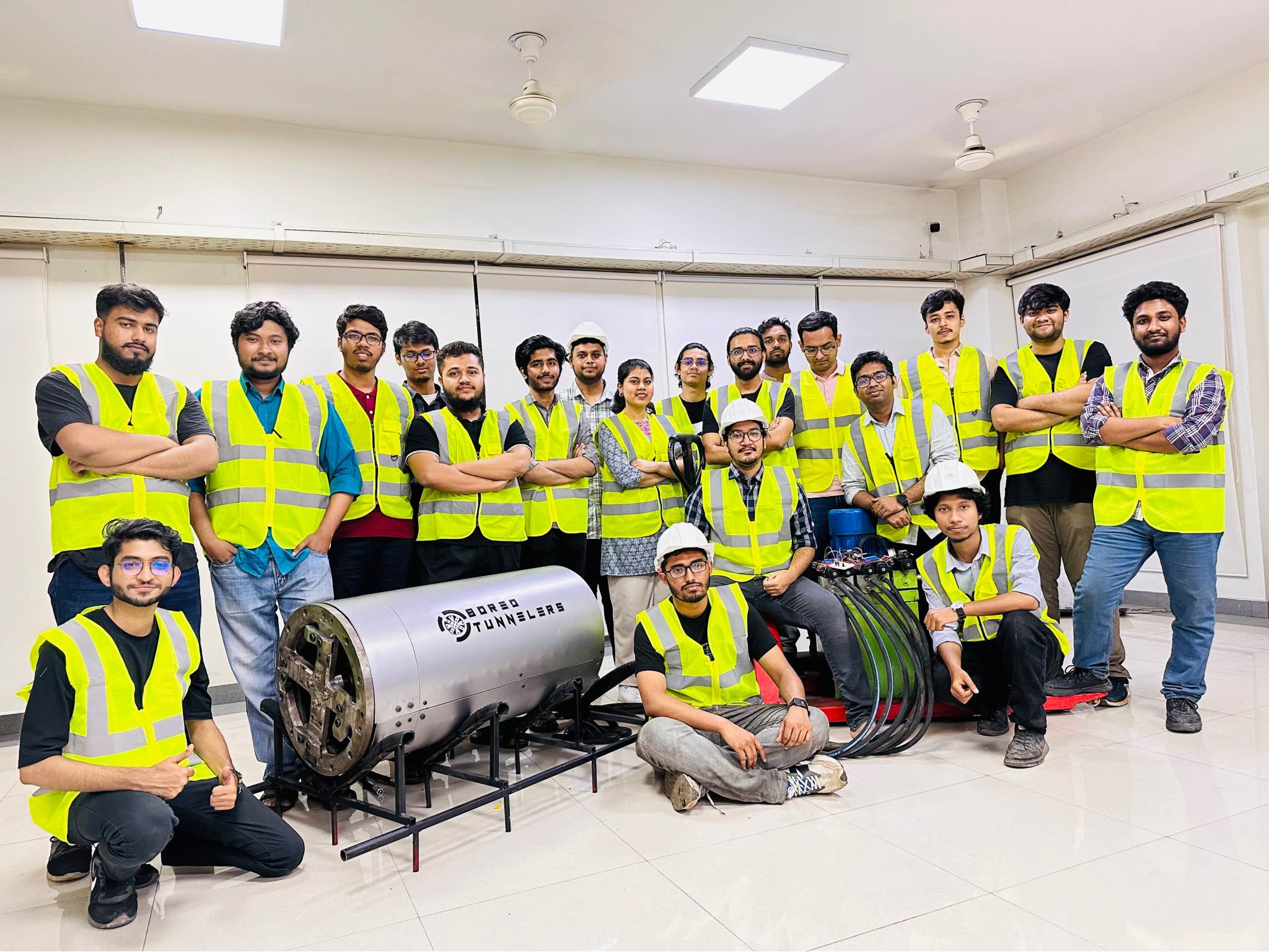Bored Tunnelers in the top six of Elon Musk’s “Not a Boring Competition”

Team Bored Tunnelers has proudly secured a place among the top six teams in the 2025 edition of Elon Musk's "Not-a-Boring Competition", placing Bangladesh among the top four countries in the competition. This is a historic achievement for the nation as Bored Tunnelers was the sole representative from Asia.
What started as a dream between three friends – Shaekh Mohammed Shithil, Shahriar Iqbal Mahim, and Fahin Uddin Enam – has now become a national symbol of innovation. Formed back in 2023, the team has grown into a group of over 30 young engineers and students, uniting talents from ten different universities across Bangladesh. Together, they took on one of the most challenging engineering competitions in the world, hosted by The Boring Company – founded by Elon Musk – in Bastrop, Texas. Last year, they won the prestigious 'Rookie Award", making their entrance into the competition noteworthy.
The competition spanned from March 24 to March 30 and included several technical rounds before the final "Dig Day" round. On the first day, teams had to present their "Mining Readiness Review (MRR)", showcasing their overall preparation. They also visited key parts of The Boring Company's facilities, including the famous PRUFROCK-3 and PRUFROCK-4 tunnel boring machines.
In the following days, each subsystem of the team's machine – hydraulics, electrical, mechanical, and software – was thoroughly inspected. Through these inspections, Bored Tunnelers had to prove that their design could withstand the real challenges of boring underground.
The final testing and digging race involved each team's tunnel boring machine being put to the test to see which one could dig the most and safest as well as navigate the best.
"Each year, the bar gets higher," said Nafis Ashraf, the team lead. "And what makes the 'Not-a-Boring Competition' stand apart from other competitions is that this competition itself involves a unique learning curve. The Boring Company engineers constantly work with each team, guide them to bring out the best results, and ensure that the machines' cutterheads bore into the ground. If a team can't check all the boxes of a certain sub-system inspection in one day, they give them more time and later come back to check the improvements the team made on the spot."
For a team coming from a developing country with limited access to high-end R&D infrastructure, their journey was far from easy. But this only made the appreciation they received even more meaningful. "Our cutterhead was the best in the competition," said Md Apu Bhuiyan, the team's head of manufacturing. "The cutterhead – the rotating front part of the machine that breaks through the ground – was praised not only for its efficiency but also for how cleverly it was engineered under resource constraints."
The team's vice-president, Iqbal, added, "Our team is the first ever team in Bangladesh that brought together a bunch of students to work on a closed R&D setup like tunneling technology. We have recently tested our machine at the MRT Line-5 depot at Hemayetpur, thanks to Dr Moshiur sir. This type of real-world testing is crucial to understand where theory meets practice and where it often fails."
Tunnel boring machines (TBMs) might not be a new technology, but in today's world, they are more important than ever. As urban populations grow rapidly and roads become increasingly congested, the need for underground transport solutions is becoming urgent. TBMs offer a way to expand infrastructure in crowded cities without disrupting the surface.
Bangladesh, too, is undergoing a major infrastructural transition with several mega projects in place. The success of Bored Tunnelers shows that the country doesn't just have to depend on foreign technology; it can build its own.
The potential of TBMs extends far beyond urban metro systems. Mega TBMs can help address some of the most critical global challenges. For instance, underground waste management systems using TBMs can transform how cities handle garbage disposal and sanitation, keeping the surface clean while processing waste underground in an automated fashion. Similarly, flood tunnels constructed beneath cities can serve as crucial buffers to prevent waterlogging during monsoon or cyclonic events, especially relevant for a flood-prone country like Bangladesh. TBMs are also essential in mining operations, including future missions for undersea resource extraction.
Team Bored Tunnelers' journey has also opened doors for investments and support in deep-tech innovation in Bangladesh. Under the guidance of forward-thinking advisors, there is a renewed push to fund and promote R&D-based projects. Initiatives like Bored Tunnelers are exactly the kind of projects that can drive Bangladesh into the future.
The team's partnership with Grameenphone has also played a key role in making this year's participation possible. Their financial and logistical support helped maintain the team's presence in Bastrop, Texas, for the second year in a row.
With more refined machines, new recruits, and bigger goals, the team is determined to push robotics and tunnelling innovation in Bangladesh to the next level. As their story illustrates, with the right blend of passion, teamwork, and support, even the most ambitious dreams can be built, one tunnel at a time.
Fatima Ashraf is a contributor for Campus - The Daily Star.




 For all latest news, follow The Daily Star's Google News channel.
For all latest news, follow The Daily Star's Google News channel. 
Comments